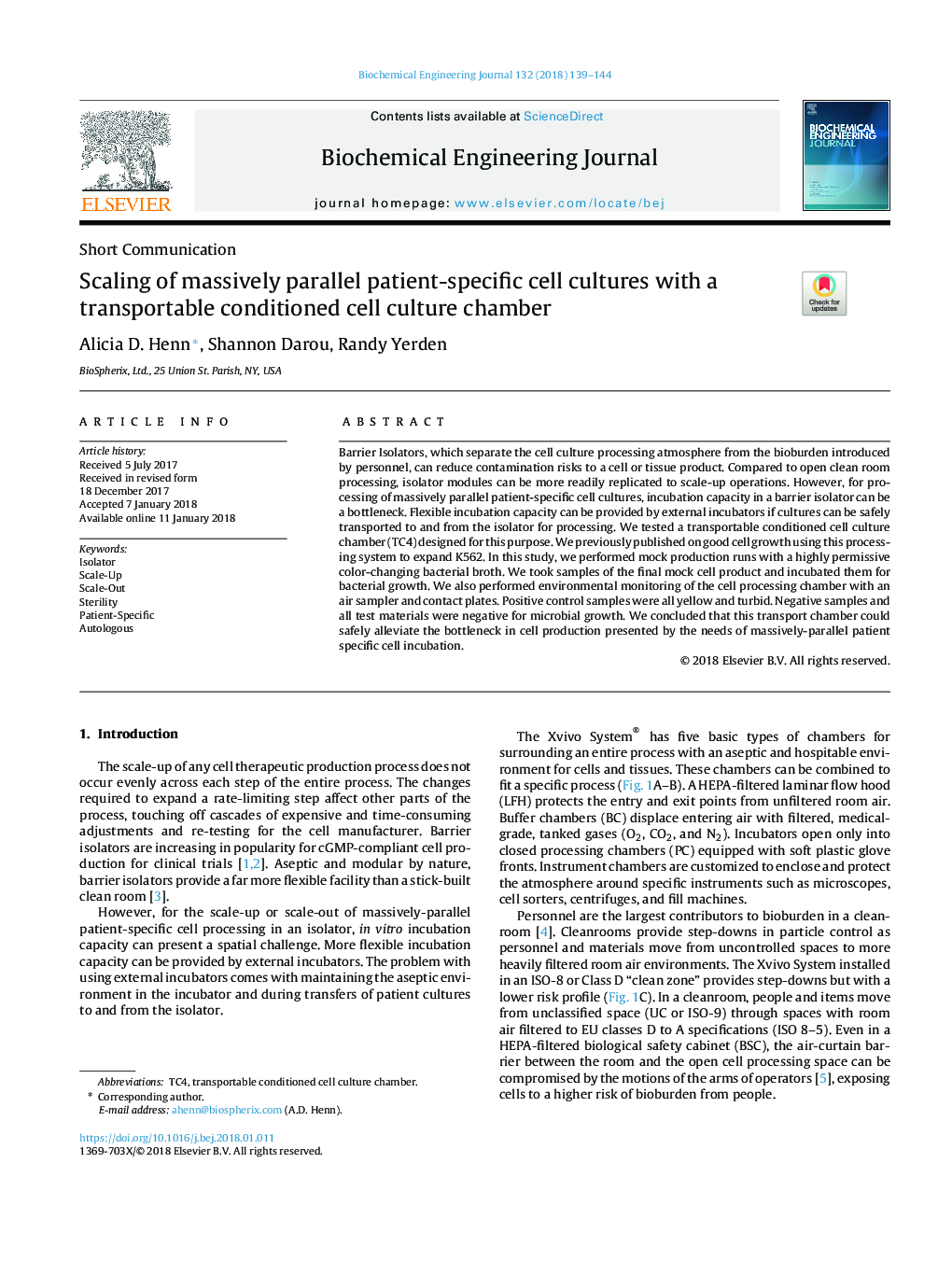| Article ID | Journal | Published Year | Pages | File Type |
|---|---|---|---|---|
| 6482246 | Biochemical Engineering Journal | 2018 | 6 Pages |
Abstract
Barrier Isolators, which separate the cell culture processing atmosphere from the bioburden introduced by personnel, can reduce contamination risks to a cell or tissue product. Compared to open clean room processing, isolator modules can be more readily replicated to scale-up operations. However, for processing of massively parallel patient-specific cell cultures, incubation capacity in a barrier isolator can be a bottleneck. Flexible incubation capacity can be provided by external incubators if cultures can be safely transported to and from the isolator for processing. We tested a transportable conditioned cell culture chamber (TC4) designed for this purpose. We previously published on good cell growth using this processing system to expand K562. In this study, we performed mock production runs with a highly permissive color-changing bacterial broth. We took samples of the final mock cell product and incubated them for bacterial growth. We also performed environmental monitoring of the cell processing chamber with an air sampler and contact plates. Positive control samples were all yellow and turbid. Negative samples and all test materials were negative for microbial growth. We concluded that this transport chamber could safely alleviate the bottleneck in cell production presented by the needs of massively-parallel patient specific cell incubation.
Related Topics
Physical Sciences and Engineering
Chemical Engineering
Bioengineering
Authors
Alicia D. Henn, Shannon Darou, Randy Yerden,
